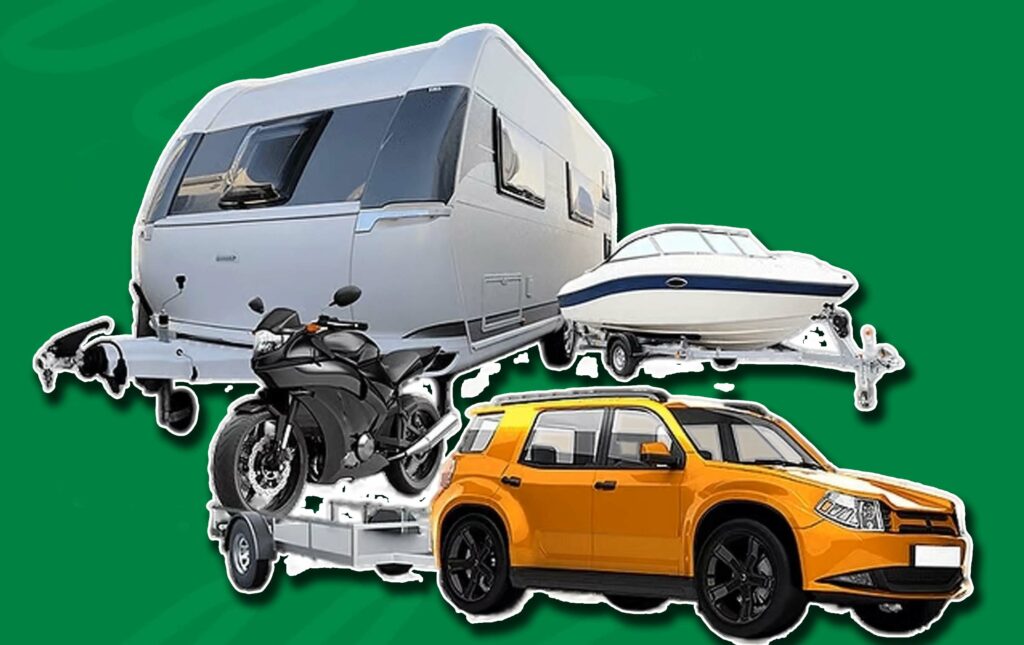Does Car Insurance Cover Trailers – Normally, your personal car insurance coverage protects the investment in your car and covers you from liability in case of an accident or crash. But what about trailers? If you have a trailer, is it covered under the same personal auto insurance policy automatically?

Generally speaking, the answer is that most car insurance policies offer liability coverage for your trailer if it is being towed by the insured vehicle when the accident happened. However, keep in mind this varies among different states and different policies. To have comprehensive coverage and collision coverage on your travel, you may have to buy additional coverage. And list the trailer on your policy declaration page.
How Does Your Personal Car Insurance Cover Trailers?
Many auto insurers extend the liability coverage for a trailer in tow if an accident happens. And that is because personal injury and property damage done by a towed trailer are considered to be the driver in the lead vehicle’s fault. This coverage is only limited to third-party liability. It will only kick in if the trailer is owned and registered by the insured and if the trailer is attached to the insured car when the accident happens.
Most auto carriers categorized trailers as vehicles that are towed by trucks. However, this does not include trailers for business use, farm wagons that carry passengers, roof carriers, or motor vehicles being towed. Insurance coverage requirements depend on your trailer’s type and use. For example, trailers for hauling boats, ATVs, cars, or other vehicles are always covered by the towing vehicle’s auto policy. However, keep in mind that this policy often doesn’t cover the trailer’s contents. So you might need extra insurance to protect items inside the trailers.
More on How Car Insurance Cover Trailers
When you are purchasing a utility trailer, ensure to check with your insurance agent if you have to add coverage to your policy. If you don’t verify your coverage properly. You might have to pay for damages out of your pocket if an accident happens. Additionally, travel trailers, like pop-up campers, will need separate insurance. If you own a watercraft trailer, you can insure it under your boat policy. However, it won’t be covered for non-boat uses unless designated as dual-purpose.
For business trailers, you will have to have commercial trailer insurance. This includes trailers for livestock, concession trailers, dry freight trailers, gooseneck trailers, dumpsters, transfer boxes, and auto haulers.
What if I am Towing a Trailer Out of the State?
If you are towing your trailer out of your zip code and it causes property damage or bodily injury to a third party, your auto policy should offer liability coverage up to the limits of your policy.
If the state you are going to has higher liability requirements than your home state, your policy’s out-of-state liability limits may come up to meet the requirements.
What Coverage Should I Purchase for my Trailer?
We suggest buying collision and comprehensive coverage for your trailer to ensure you’re well-protected from future financial losses. Collision insurance will help cover repair costs if your trailer gets damaged in an accident, no matter who’s at fault. The comprehensive coverage will help cover non-accident damages like vandalism, theft, or severe weather. For both of these coverages, you’ll need to pay a deductible in order to get compensation when you file a claim.
You usually need a separate policy for your trailer. And just like I have mentioned above, you should list the trailer on the policy declarations page. You may be able to select the coverage amount for your trailer. If you rent a trailer, it is advisable that you get insurance from the rental company since your policy likely won’t cover rented trailers.
It is also advisable that you check if your homeowner’s policy covers boats, trailers, and related equipment. This coverage would only be secondary to your watercraft insurance. And might only apply to theft or vandalism at home, not collision damage.
A personal umbrella policy is another good option. It offers extra coverage beyond your auto, watercraft, or homeowner’s policy. For instance, if your trailer and boat cause ’huge damage or injury in an accident. And your liability coverage isn’t enough; an umbrella policy can cover the additional costs.
Amount of Trailer Insurance
When you purchase a policy for your trailer, consider its value so you can have adequate coverage to replace it when needed. According to research, the average cost of common types ranges from
- $6000 – $100,000 for a hauler for dirt bikes and ATVs
- $5000 – $100,000 for a horse trailer
- $800 – $15,000 for a motorcycle trailer
- $700-$5000 for trailers that are made to carry watercraft or boats
- $500-$100,000 for a snowmobile trailer
- $200-$8000 for a standard utility trailer
Factors that may affect the cost of coverage for your trail include the purpose, the type of coverage you want, the size, how often you use it, and the average miles you travel with it every year. You will need to pay more to cover a trailer you drive around than the one you drive only on your property.



